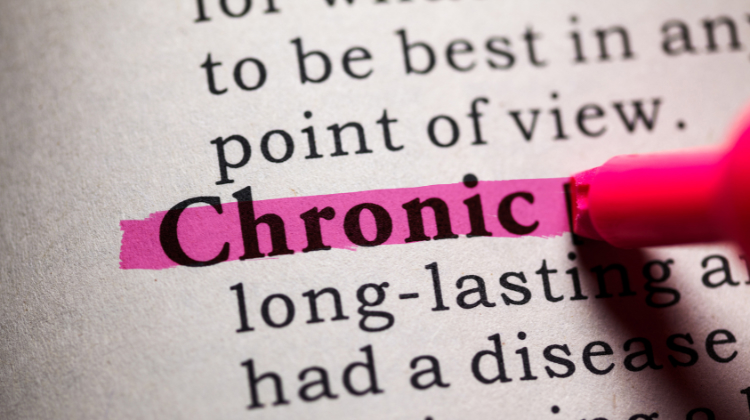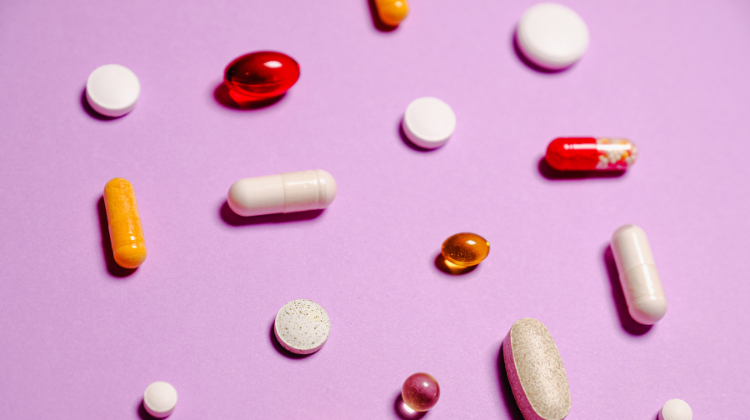High-Functioning Depression: Definition, Symptoms & How To Deal 2024

Just as there’s no one single factor that leads to depression, there’s not one single face to it, either. Some people are able to go about their day while others can’t imagine leaving the house. The way society stigmatizes mental illness also affects just how willing people are to show their symptoms or pursue help.
Hiding depression has been going on for centuries, and high-functioning depression is just one version of it. People suffering often maintain their regular daily tasks, and they may even appear to get more work done than the average person. Internally, however, they might be feeling an intense sadness and emptiness that won’t go away, no matter what they do.
Fortunately, there are many different types of therapy that, once the depression is recognized and acknowledged, can greatly help to reduce symptoms.
What Is High-Functioning Depression?
High-functioning depression has become a common expression to describe people who are depressed but appear to live a normal and active lifestyle. Unless they divulge their depression to you, you might assume they’re fine or coping well with any hardships they’re experiencing.
While the high-functioning depression definition is not an official diagnosis as described in the “Diagnostic and Statistical Manual of Mental Disorders” (DSM-5), those suffering can still be diagnosed as clinically depressed. They’re likely to be given the diagnosis of persistent depressive disorder (PDD or dysthymia[1]) and require professional treatment.
People may display signs similar to major depressive disorder (MDD[2]) but with key differences, such as less severe symptoms and a chronic depressive state lasting for at least two years[3].
Unfortunately, many of those experiencing depressive symptoms never seek treatment, which greatly reduces their chances of recovering. It also puts them at a much higher risk of suicide, especially since many of the signs may be hidden from friends and family. (The most common cause of suicide is untreated or inadequately treated depression.)
High-Functioning Depression Symptoms & Signs
Even with functioning relatively well in daily life, many of the symptoms of high-functioning depression are similar to those with major depression. The pain might be hidden, but if you pay close attention, you might notice if you or a loved one is suffering. Here are some of the signs of high-functioning depression to watch out for:
Physical Symptoms
- Constant fatigue
- Difficulty sleeping
- Loss of libido
- Digestive issues
- Change in appetite or weight
- Aches and pains (headaches, backaches, joint pain, muscle soreness)
Emotional Symptoms
- Feeling irritable, anxious
- Loss of enjoyment in activities
- Difficulty concentrating or making decisions
- Persistent sadness, emptiness
- Desire to be alone, isolating yourself
- Feeling hopeless, pessimistic
- Focusing on the past instead of the future
- Considering self-harm or suicide
If you’ve noticed these symptoms in yourself or someone else, try to open a conversation with a professional or a kind and listening ear. There are also free text lines and national helplines that offer support.
Causes Of High-Functioning Depression
Depression is usually triggered by a combination of circumstances, such as stressful life experiences, health status, and genetics. We all have a certain threshold of stress we can handle, and once we reach that point, we may be more likely to develop a mental illness. This is also why it’s so important to include stress-relieving activities in your daily life to try to prevent mental health issues from developing.
Here are some of the factors that can lead to depression:
Stressful Life Events

Life is rarely without obstacles. While we can manage some stress, certain situations may overwhelm our nervous system and put us in a depressive state. This includes
- Separation/divorce
- Loss of a loved one
- Chronic stress (work, home, or financial problems)
- Caring for an ailing family member
- Chronic isolation (little to no social support or community)
- Moving (or loss of home)
- Environmental stress (city life; too much noise, pollution, crowding, light, etc.)
Trauma

Events that happen from childhood through to adulthood can all increase our risk of depression. Some of the most common traumatic events[4] are
- Emotional neglect or abuse
- Physical or sexual assault
- Serious accidents, injury
- Complicated childbirth experiences
- War, conflict, terrorism
- Witnessing a violent death
- Disasters (tsunamis, hurricanes, earthquakes, fires, etc.)
- Working with trauma (police officers, firefighters, paramedics, military, etc.)
Chronic Medical Conditions

Research shows that certain health conditions[5] make you more likely to develop depression. This includes diabetes, cancer, heart disease, Parkinson’s, and chronic pain. When chronic pain isn’t treated adequately, hopelessness arises, which causes pain to be perceived as more intense, further causing depression in a vicious cycle. If you have another mental health condition, such as anxiety[6], you are also more at risk of developing depression.
Genetics

A family history[7] of depression, anxiety, or bipolar disorder can mean you have a lower threshold for stress and develop mental health dysfunction more easily. Your genetics may also be connected to brain chemistry[8], where the neurotransmitters that regulate mood work differently.
Lifestyle

There’s no doubt that the way you eat, sleep, exercise, and rest greatly affects your mental health.
For example, an unhealthy diet usually leads to an imbalance in your gut microbiota. Research[9] on the delicate gut-brain axis shows that the bacteria in your gut affect healthy brain function. Eating nutritionally empty foods[10] high in sugar, fat, salt, and preservatives all reduce the health of your gut and affect your short and long-term mood and risk of mental illness.
There are also certain deficiencies that contribute to chronic depression, such as B vitamins[11], vitamin D[12], omega-3s[13], and iron[14].
Little sleep, exercise, and rest also put a great strain on the body. An unhealthy work-life balance and minimal time with friends[15] are some of the greatest contributors to depression.
How To Deal With It
Once you acknowledge your symptoms you’ll have a better opportunity to take action and try different treatments. There are many things you can do on your own that, combined with professional treatment, can make a difference in alleviating severe depression and improving your life.
Practice Stress-Relieving Activities Daily

We all know the importance of reducing stress for our health. However, most of the population still works too many hours and has no work-life balance. Scheduling non-negotiable downtime is key in today’s overwhelming world. You might not even realize just how stressful a normal day is; traffic jams, meetings, running errands, and loud overcrowded cities[16] all take their toll on your nervous system.
If you take just 20 minutes a day (spread out or all at once) to rest, relax, and allow your creativity to flow, you’re more likely to reduce symptoms of high-functioning depression and anxiety. Try journaling[17], walking in the park[18], face timing with a friend[15] for a laugh, or taking short meditation[19] breaks throughout the workday. These little things add up and make a difference to both your short and long-term depressed mood.
Develop Healthy Lifestyle Habits

How you eat, sleep, and move your body all affect your overall mental health and level of depression.
If changing your lifestyle sounds overwhelming and impossible, don’t worry. There’s no need to change your habits overnight. Working on one thing at a time offers the best chances of success, so think about which one tiny habit change might have the greatest overall domino effect to benefit your life.
Changing your nighttime sleep schedule[20], for example, might help you start waking up earlier. With more time in the morning, you might be motivated to make a healthy breakfast. From there, you’ll have some energy to be more productive at work or just make it through your day better.
You can also add a multivitamin to reduce symptoms. Much of the population is deficient in vitamin D[21] and B vitamins[22], (along with iron[23] for women). All these nutrients directly affect brain function and energy levels. Overall, eating nutrient-dense foods, and at a minimum taking a probiotic[24], can significantly alleviate depression.
Finally, research shows just 20 minutes a day or 150 minutes total[25] per week of physical activity dramatically boosts mental and physical health. Start slowly with exercise or in any one of these other areas and within a few weeks, you might notice huge improvements.
Treatments For High-Functioning Depression
Even if you’re able to continue working and have a healthy lifestyle routine, it doesn’t mean you won’t dramatically benefit from professional treatment. If you have symptoms of depression, seeking help from a professional offers the best chance of improving.
Therapy

Most people underestimate the importance of therapy when struggling with a mental health condition. Even if you talk to friends, practice stress-relieving activities, and follow healthy habits, you still may not be getting the support, accountability, and knowledge specific to a mental health professional.
About 70%[26] of people with depression recover when they get proper treatment from a professional. Without therapy, the likelihood of suffering for extended periods of time, or never recovering, is much higher. This is because a therapist can help you discover your true needs and desires and teach you life-long coping tools specific to your situation and lifestyle.
Support Groups

Many people disregard group therapy because they’re uncomfortable sharing their emotions with a group of strangers. Once you attend a few sessions, however, those strangers end up becoming your community of much-needed positive support.
In the end, we are social beings and we need to connect with others and feel part of a community to function properly. Research a support group near you or online and gain accountability, understanding, and tools to cope. The immense value[27] these groups can offer is well worth the initial discomfort of a session or two.
Medication

Scheduling a visit with a doctor is the first step to treating depression with medication. You can ask for a thorough check-up with blood work to also rule out any deficiencies, illnesses, or hormonal imbalances. From there, they should recommend talk therapy sessions. A psychiatrist will assess your medication needs and possibly prescribe antidepressants that can help.
Continuing talk therapy, even if given medication, is highly recommended. You can learn lifelong coping tools and have an easier time weaning off of medication when the time comes.
Summary
Depression comes in all shapes and sizes. Just because someone appears to continue on with their daily life doesn’t mean they don’t have clinical depression. Many people also feel pressured to hide their symptoms and pretend everything’s alright, making the chances even higher that they’ll neglect professional treatment.
Overall, the majority of adults with mental illnesses don’t seek help. Those that do get professional treatment for high-functioning depression have a much higher likelihood of recovering. It’s important to do what you can to reduce the stigma of mental illnesses and encourage professional help to anyone who might be suffering.
+ 27 sources
Health Canal avoids using tertiary references. We have strict sourcing guidelines and rely on peer-reviewed studies, academic researches from medical associations and institutions. To ensure the accuracy of articles in Health Canal, you can read more about the editorial process here
- Parmelee, P.A. (2007). Depression. Encyclopedia of Gerontology, [online] pp.400–409. doi:10.1016/b0-12-370870-2/00052-4.
- National Institute of Mental Health (NIMH). (2022). Depression. [online] Available at: https://www.nimh.nih.gov/health/topics/depression
- Patel, R.K. and Rose, G.M. (2022). Persistent Depressive Disorder. [online] Nih.gov. Available at: https://www.ncbi.nlm.nih.gov/books/NBK541052/
- www.rcpsych.ac.uk. (2021). Coping after a traumatic event | Royal College of Psychiatrists. [online] Available at: https://www.rcpsych.ac.uk/mental-health/problems-disorders/coping-after-a-traumatic-event
- Rosenblat, J.D., Kurdyak, P., Cosci, F., Berk, M., Maes, M., Brunoni, A.R., Li, M., Rodin, G., McIntyre, R.S. and Carvalho, A.F. (2019). Depression in the medically ill. Australian & New Zealand Journal of Psychiatry, [online] 54(4), pp.346–366. doi:10.1177/0004867419888576.
- Hirschfield, R.M.A. (2001). The Comorbidity of Major Depression and Anxiety Disorders. The Primary Care Companion to The Journal of Clinical Psychiatry, [online] 03(06), pp.244–254. doi:10.4088/pcc.v03n0609.
- Levinson, D.F. (2006). The Genetics of Depression: A Review. Biological Psychiatry, [online] 60(2), pp.84–92. doi:10.1016/j.biopsych.2005.08.024.
- Arango, V., Underwood, M.D. and Mann, J.John. (2002). Chapter 35 Serotonin brain circuits involved in major depression and suicide. Progress in Brain Research, [online] pp.443–453. doi:10.1016/s0079-6123(02)36037-0.
- Foster, J.A. and McVey Neufeld, K.-A. (2013). Gut–brain axis: how the microbiome influences anxiety and depression. Trends in Neurosciences, [online] 36(5), pp.305–312. doi:10.1016/j.tins.2013.01.005.
- Hafizurrachman, M. and Hartono, R.K. (2021). Junk Food Consumption and Symptoms of Mental Health Problems: A Meta-Analysis for Public Health Awareness. Kesmas: National Public Health Journal, [online] 16(1). doi:10.21109/kesmas.v16i1.4541.
- Coppen, A. and Bolander-Gouaille, C. (2005). Treatment of depression: time to consider folic acid and vitamin B12. Journal of Psychopharmacology, [online] 19(1), pp.59–65. doi:10.1177/0269881105048899.
- Anglin, R.E.S., Samaan, Z., Walter, S.D. and McDonald, S.D. (2013). Vitamin D deficiency and depression in adults: systematic review and meta-analysis. British Journal of Psychiatry, [online] 202(2), pp.100–107. doi:10.1192/bjp.bp.111.106666.
- Logan, A.C. (2004). Lipids in Health and Disease, [online] 3(1), p.25. doi:10.1186/1476-511x-3-25.
- Hidese, S., Saito, K., Asano, S. and Kunugi, H. (2018). Association between iron-deficiency anemia and depression: A web-based Japanese investigation. Psychiatry and Clinical Neurosciences, [online] 72(7), pp.513–521. doi:10.1111/pcn.12656.
- House, J.S., Landis, K.R. and Umberson, D. (1988). Social Relationships and Health. Science, [online] 241(4865), pp.540–545. doi:10.1126/science.3399889.
- Gruebner, O., Rapp, M.A., Adli, M., Kluge, U., Galea, S. and Heinz, A. (2017). Cities and Mental Health. Deutsches Ärzteblatt international. [online] doi:10.3238/arztebl.2017.0121.
- Niles, A.N., Haltom, K.E.B., Mulvenna, C.M., Lieberman, M.D. and Stanton, A.L. (2013). Randomized controlled trial of expressive writing for psychological and physical health: the moderating role of emotional expressivity. Anxiety, Stress, & Coping, [online] 27(1), pp.1–17. doi:10.1080/10615806.2013.802308.
- Mental Health Foundation. (2022). Nature: How connecting with nature benefits our mental health. [online] Available at: https://www.mentalhealth.org.uk/our-work/research/nature-how-connecting-nature-benefits-our-mental-health
- Edenfield, T.M. and Saeed, S.A. (2012). An update on mindfulness meditation as a self-help treatment for anxiety and depression. Psychology Research and Behavior Management, [online] p.131. doi:10.2147/prbm.s34937.
- Rezaei, M., Khormali, M., Akbarpour, S., Sadeghniiat-Hagighi, K. and Shamsipour, M. (2018). Sleep quality and its association with psychological distress and sleep hygiene: a cross-sectional study among pre-clinical medical students. Sleep Science, [online] 11(4), pp.274–280. doi:10.5935/1984-0063.20180043.
- Omeed Sizar, Khare, S., Goyal, A. and Givler, A. (2022). Vitamin D Deficiency. [online] Nih.gov. Available at: https://www.ncbi.nlm.nih.gov/books/NBK532266/
- Rogers, L.M., Cordero, A.M., Pfeiffer, C.M., Hausman, D.B., Tsang, B.L., De-Regil, L.M., Rosenthal, J., Razzaghi, H., Wong, E.C., Weakland, A.P. and Bailey, L.B. (2018). Global folate status in women of reproductive age: a systematic review with emphasis on methodological issues. Annals of the New York Academy of Sciences, [online] 1431(1), pp.35–57. doi:10.1111/nyas.13963.
- Miller, J.L. (2013). Iron Deficiency Anemia: A Common and Curable Disease. Cold Spring Harbor Perspectives in Medicine, [online] 3(7), pp.a011866–a011866. doi:10.1101/cshperspect.a011866.
- Huang, R., Wang, K. and Hu, J. (2016). Effect of Probiotics on Depression: A Systematic Review and Meta-Analysis of Randomized Controlled Trials. Nutrients, [online] 8(8), p.483. doi:10.3390/nu8080483.
- CDC (2022). How much physical activity do adults need? [online] Centers for Disease Control and Prevention. Available at: https://www.cdc.gov/physicalactivity/basics/adults/index.htm
- Novick, D., Montgomery, W., Vorstenbosch, E., Moneta, M.V., Duenas, H. and Haro, J.M. (2017). Recovery in patients with major depressive disorder (MDD): results of a 6-month, multinational, observational study. Patient Preference and Adherence, [online] Volume 11, pp.1859–1868. doi:10.2147/ppa.s138750.
- Reblin, M. and Uchino, B.N. (2008). Social and emotional support and its implication for health. Current Opinion in Psychiatry, [online] 21(2), pp.201–205. doi:10.1097/yco.0b013e3282f3ad89.



